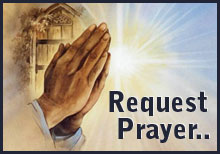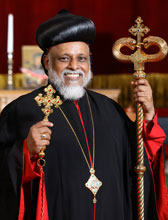Orthodox Sunday School Association of the East (OSSAE)
Like every other “school”, the Sunday school also needs to prepare and groom the young ones for life. The Church needs workers functioning in different capacities in it. Whatever ‘call’ each person receives, it has to be illuminated in the context of the concerns of the Church. Stories of the saintly monks in Christian monasticism, and those of martyrs, can really inspire the young people; and instill in them a sense of purpose in life. In many ways, a Christian is an “apostle.” Every person has to fulfill certain divinely assigned responsibilities. The Church is never a worldly institution, running after power and money; and has to “show” that in its life. Young people, being idealistic, shall be attracted by a serving and suffering Church!
The onus of communicating the Christian ‘message’ to our children rests mainly with the Sunday school teachers, who are actually engaged in the “teaching mission” of the Church. Hence, they always need to entertain such a vision based on a rare sense of dedication. The Guru, here, is not a formal and professional individual, but a parent and mentor to the pupils. The life of the Guru counts a lot; since, as different from the secular school, the Sunday school in concerned about the meaning of life and the ultimate destiny of humanity. It shall always remain attached to the local parish church and the celebrations of the sacraments. The holy Bible, the writings of the Fathers and the holy Liturgy, shall serve as a bridge between the life of students in the community and their “citizenship” in heaven.
Therefore, the Sunday school cannot afford to be drudgery for the students; it has to appeal to the mind and conscience of the learners. Of course, this is achieved through lessons, exercises and practical experiences in the church and the community. It thus becomes very obvious that the teaching ministry of the Church is shared by the liturgical activities in the church, and the dynamic uninterrupted functioning of the Sunday school. So, every parish has to provide for the Sunday school in the best manner possible.
One serious handicap with our Sunday school practice, is lack of proper space, and adequately trained teachers. The latter issue is partly solved by the in-service programmes and the new orientation in the curriculum of the two terminal classes. There are only very few parishes, which can provide an “educational space” for conducting classes. This malady is not easy to be corrected. Each parish has to plan and provide a proper space and an educational environment for the Sunday school. The space and physical provisions in today’s Sunday school classes largely fail to convey the message that it is also a school; and thus attract the children towards it. This larger issue shall be addressed at some point, in order to make our church education programme more fruitful and relevant
A Brief History of the Sunday School in the Orthodox Church
The Orthodox Church lays great emphasis and importance in educating children with the values of Christian life, the contents of the Bible and the Church history. The “Koonenkurish Sathyam” in 1653 was a turning point. It emphasized the need for Catechism and Scriptural studies. During the period 1765-1808, the study of sacraments and prayers were also included in the lessons. This was the beginning of the Sunday school in the Church. The Sunday School Samajam started functioning in 1931 with the appointment of Puthencavu Geevarghese Mar Philoxenos as its President and Fr. K. David as the General Secretary. On 15 October 1964 it was rejuvenated to receive its present form as “Orthodox Sunday School Association of the East” (OSSAE). This spiritual organization is functioning in all the parishes of the church throughout the world. It takes care of the spiritual nurturing of the children by bringing them up in the knowledge and fellowship of Jesus Christ and His Church.
The classes are conducted in Malayalam for the children in Kerala and for others in English. It has a separate wing for the outer Kerala region, which is called as OSSAE-OKR.
The classes range from Pre-primary classes to the 12th class. As in secular schools, class ten concludes the secondary level and a certificate is awarded -Sunday School final Certificate (SSFC) to the successful candidates. Higher Secondary course is for another two years.
We follow a curriculum, jointly prepared and published by the Oriental Orthodox Churches which is revised from time to time.
PATRON: His Holiness Baselios Marthoma Mathews III, Catholicos and the Malankara Metropolitan
OSSAE PRESIDENT: H.G. Alexios Mar Eusebius
DIRECTOR GENERAL: Rev. Fr. Dr. Varghese Varghese Meenadom
Office Bearers of OSSAE-OKR
PRESIDENT: H. G. Dr. Youhanon Mar Demetrios
DIRECTOR: Rev. Fr. Dr. Jossi Jacob
Executive Officer: Fr. Anish Issac Mathew
Treasurer: Fr. B. M. Thomas
OVBS Director: Fr. Baiju Thomas
OVBS Secretary: Mr. Thomas George
Sunday School in the Delhi Diocese
The Sunday school in Delhi Diocese was started in late 60s and is affiliated to the OSSAE (Orthodox Syrian Sunday School Association of East). It started in the area of R K Puram, New Delhi with two teachers and four or five students. Classes were conducted in the house of an Air Force Officer in Sect-2, R K Puram. Later this was shifted to St. Mary’s Cathedral, Hauz Khas in 1968-69.
There are Thirteen Sunday schools in Delhi and NCR and Nineteen active/partially active Sunday schools in UP, Punjab and Rajasthan areas.
Our mission is to enhance the spiritual growth of the new generation by teaching the Holy Bible and other religious lessons to the children of the parish.
Office Bearers of OSSAE-OKR Delhi
PRESIDENT: H. G. Dr. Youhanon Mar Demetrios, Metropolitan
| Rev. Fr. John K. Samuel | Vice President | 9968040917 |
| Mr. K.K. Babu | Director | 9811541654 |
| Mrs. Annie Varghese | Secretary | 9718204042 |
| Mr. Samuel P. Mathai | Treasurer | 9818978080 |
| Mr. T.V. Joshua | Auditor | 9312268566 |
District Inspector:
| Mrs. Smitha Varghese | NCR- South East | |
| Mrs. Lizy Panicker | NCR- West | |
| Mr. Sabu George | NCR- East | |
| Mr. Cijo Wilson | Punjab and Haryana | |
| Mr. Anto Jacob | Rajasthan | |
| Mr. Joseph Kuruvilla | U.P. – North | |
| Mrs. Jiji Joseph | U.P. – South |
District Secretaries:
| Mrs. Mariamma Thomas | NCR- South East | |
| Mrs. Sindhu Saju | NCR- West | |
| Mr. Abraham Thomas | NCR- East | |
| Dr. Nancy George | Punjab and Haryana | |
| Mrs. Nidhi Deepu | Rajasthan | |
| Mrs. Shiney Shery Oommen | U.P. – North | |
| Mrs. Susan Jaison | U.P. – South |



